Taylormade M6 vs Wilson D7 Irons Review & Specs 2023
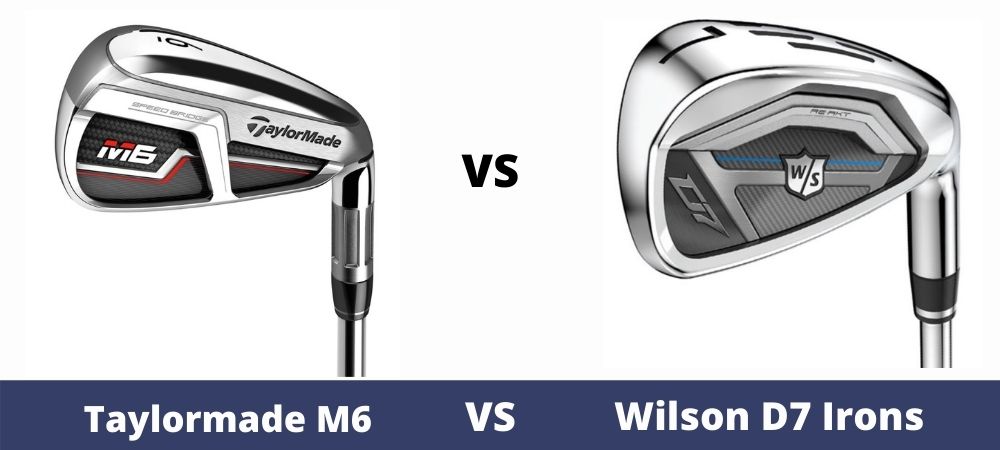
A good set of game improvement irons will offer an optimal blend of forgiveness and distance.
They should be at least a bit workable around the green as well. If you have been having a hard time finding a set that offers this elusive blend, don’t worry.
Today we are going to be pitting a couple of popular game improvement irons against each other to help narrow the field for anyone who is in the market for such a set.
Which iron set will be right for your game? Read on to find out.
Overview Of Both Iron Sets
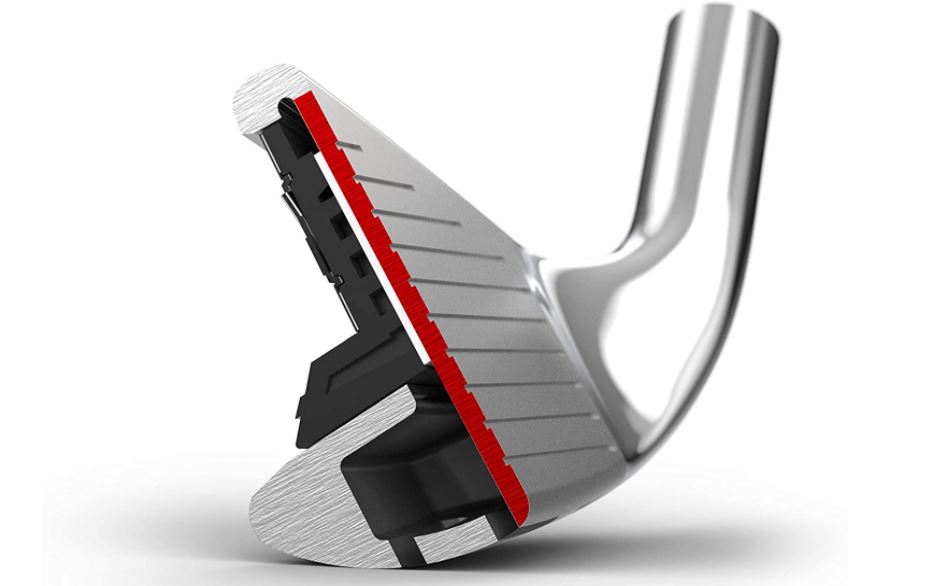
The Wilson D7’s will certainly have their work cut out for them in terms of distance because the Taylormade M series is known to play long.
The M6’s are packed with features that ensure that this reputation is firmly upheld such as a lower Speed Pocket and Speed Bridge.
The Wilson D7 irons debuted in early 2019 and were released to replace the Wilson Staff D300’s.
There are some distance improvements in the D7’s such as a thinner face but the main improvements have been made to the appearance and feel of these irons.
Taylormade M6 Key Features
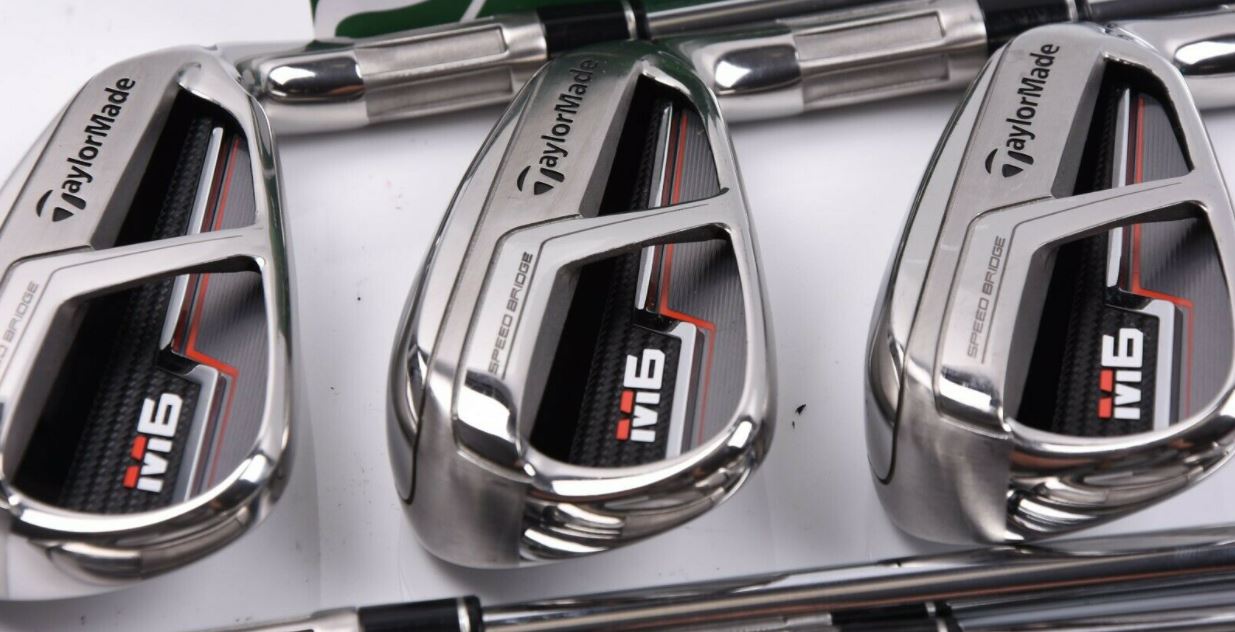
The Speed Pocket in the M6’s has been placed lower in the head so that the face can hinge more like a metal wood.
That would usually mean higher vibration and less stability but Taylormade has addressed this with their Speed Bridge which, stabilizes the club head by bracing the crown and sole.
Wilson D7 Key Features
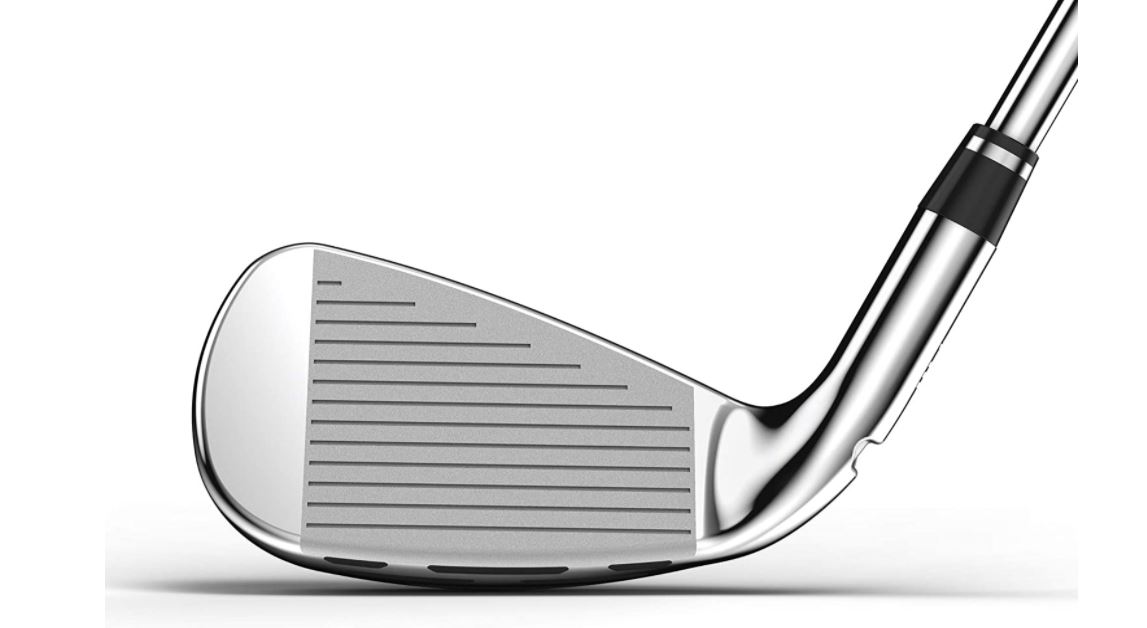
The Wilson D7 irons feature a partially hollow head design that allows a vibration dampening layer to improve feel.
While the face doesn’t hinge to produce ball speed, Wilson did add individual cavities in the sole to generate a higher degree of deflection on impact.
Loft Comparison
Taylormade M6 Loft |
Wilson D7 Loft |
|
3 Iron |
N/A |
19° |
4 Iron |
19° |
21.5° |
5 Iron |
21.5° |
24.5° |
6 Iron |
25° |
27.5° |
7 Iron |
28.5° |
30.5° |
8 Iron |
33° |
34.5° |
9 Iron |
38° |
39° |
Taylormade M6 Options
- Fujikura Atmos Orange shaft
- KBS Max 85 shaft
- Stiff, regular and amateur flex
Wilson D7 Options
- KBS $ Taper Lite steel shaft
- True Temper Catalyst 80 graphite shaft
Length & Lie Comparison
Taylormade M6 Length/Lie |
Wilson D7 Length/Lie |
|
3 Iron |
N/A |
39.25”/59.5 |
4 Iron |
39.25″/61.5 |
38.75”/60 |
5 Iron |
38.62″/62 |
38.25”/61 |
6 Iron |
38.00″/62.5 |
37.75”/61.5 |
7 Iron |
37.50″/63 |
37.25”/62 |
8 Iron |
37.00″/63.5 |
36.75”/63 |
9 Iron |
36.50″/64 |
36.25”/63.5 |
Who is Each Set for?

The Wilson D7’s and the Taylormade M6’s are both marketed to mid handicappers.
If your main concern is getting to your approach though, you would do better with the Taylormade M6’s.
If you are already tackling your approaches, you may do better with the D7’s.
Composition Comparison
The Wilson D7 irons are forged from carbon steel which gives them a really nice feel even on low face shots.
The M6’s feature a fluted hosel which, helps keep weight down and lower the CG. Both sets come in steel and graphite shafts.
Distance & Forgiveness Comparison
As we alluded in a previous section, the M6’s played longer.
The lowered speed pocket gives the hinging face more of an effect that can be noticed when it matters most.
The M6’s were also slightly more forgiving thanks in part to the more pronounced offset and slightly larger profiles.
Performance & Feel Comparison
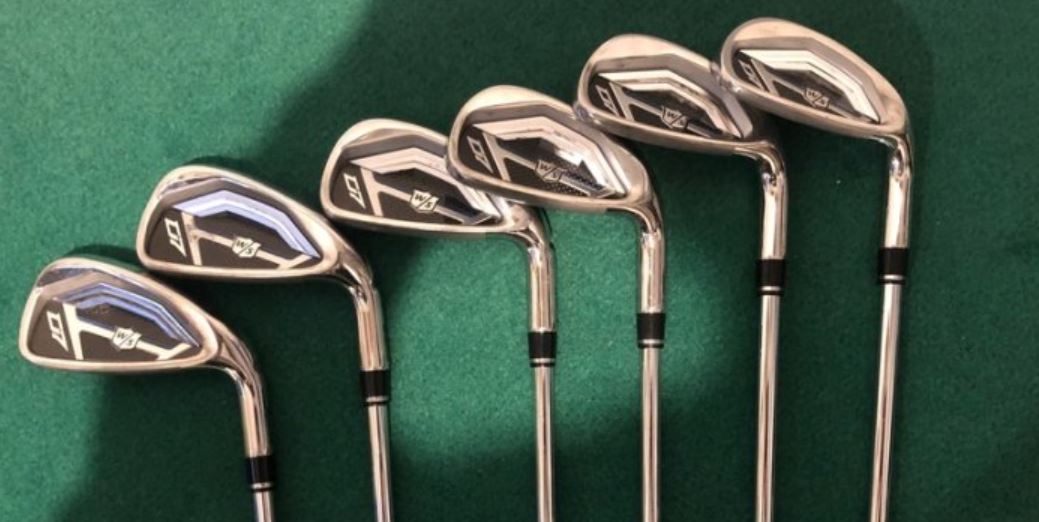
The Wilson D7’s sport stronger lofts throughout the set than the Taylormade M6’s.
This gave them a distinct advantage around the pin as they were able to drop and stop tighter on the green.
The mild carbon construction and vibration dampening internal layer also gave them a more congenial feel.
Price Comparison
You can expect to pay about $900 for a new set of Wilson D7 irons while the Taylormade M6’s go for about $690.
Wilson D7 Pros & Cons
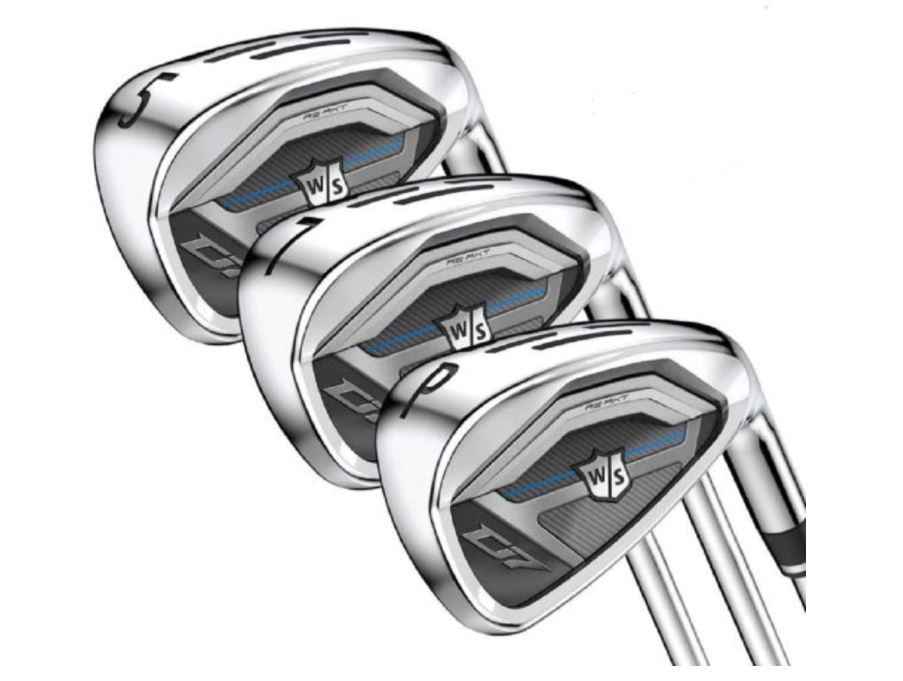
Pros:
- Forged construction
- They have a really nice feel thanks to the carbon steel construction
- They are a bit more workable around the green
- Stronger lofts
- Vibration dampening layer
- They have more of a players look
Cons:
- Less forgiving
- More expensive
- Didn’t play as long as the M6’s
- Shorter blade and less offset
Overall Score: 92/100
Check Out More Reviews Here:
Taylormade M6 Pros & Cons
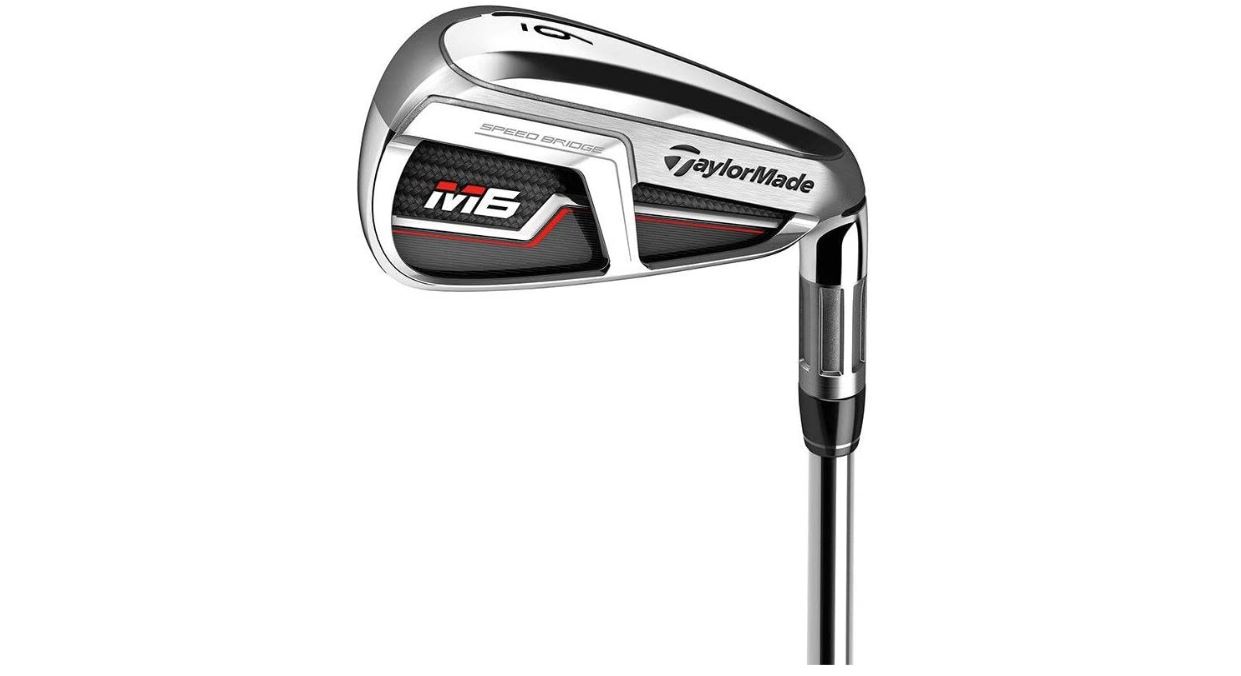
Pros:
- High flexing face without sacrificing stability
- Inverted Cone Technology enhances forgiveness
- They play longer
- They are less expensive
- Fluted hosel
- Lower Speed Pocket placement than previous M models
Cons:
- Not as workable as the Wilson D7’s
- No 3 iron option
- Limited shaft options
- Weaker lofts
Overall Score: 95/100
Check Out More Reviews Here:
Other Iron Sets Worth Considering
Taylormade Sim Max Irons
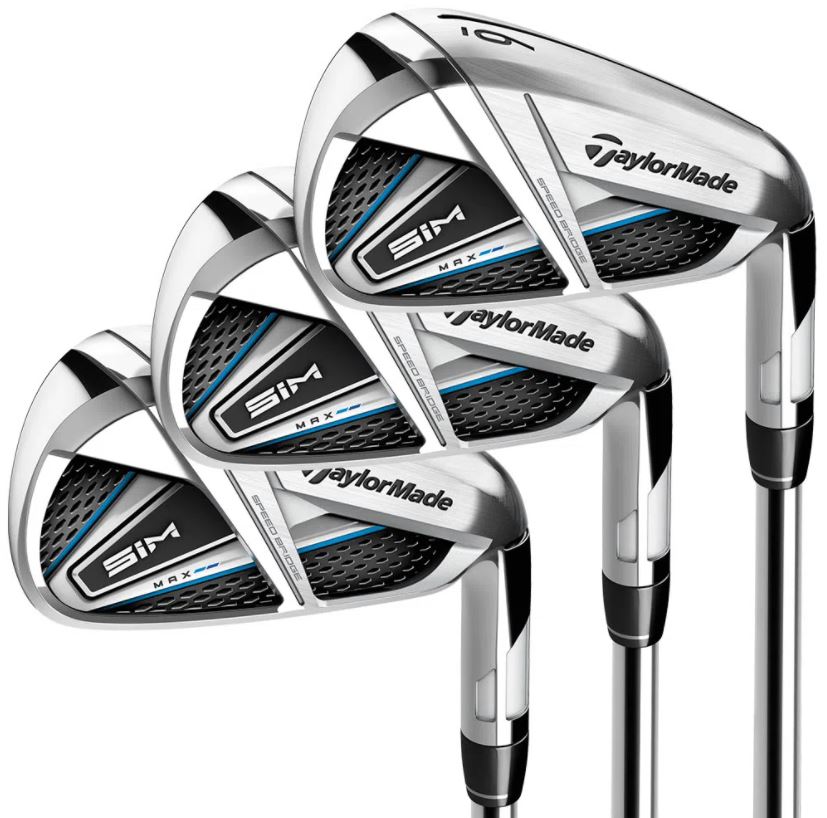
The Sim Max irons sport an ultra-thin face with a redesigned Speed Bridge to maintain stability.
The Speed Pocket is also present in the Sim Max Irons and help increase forgiveness on shots near the lower face.
Overall Score: 95/100
Check Out More Reviews Here:
Cobra F9 Irons
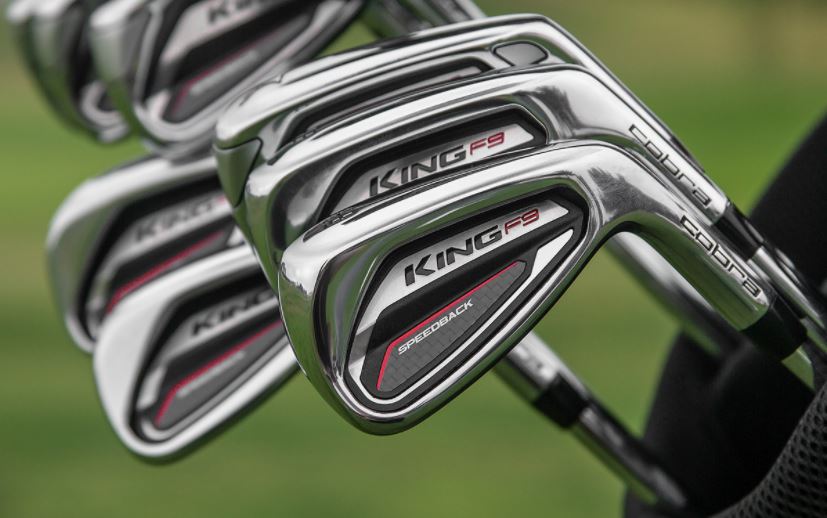
The Cobra F9 irons feature a steel band that wraps around the sole to enhance stability on even the fastest swings.
These irons also launch high effortlessly to help you grab and keep hold of more greens.
Overall Score: 93/100
Check Out More Reviews Here:
Callaway Rogue Irons
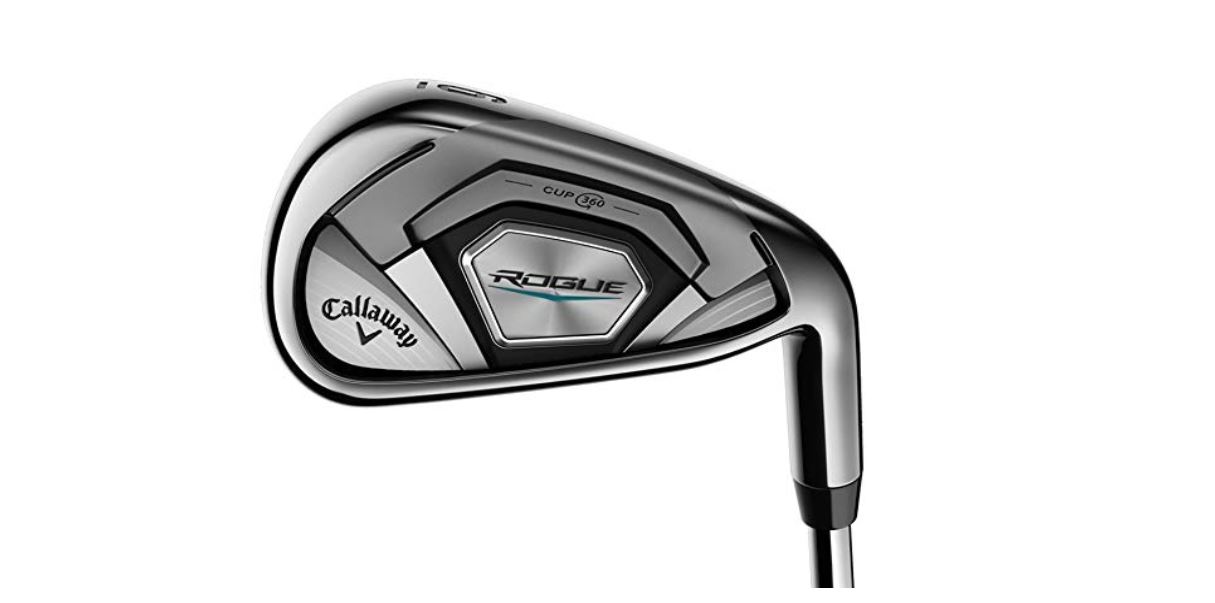
The Callaway rogue irons feature urethane injections in the head to dampen harsh vibration and sound upon impact.
The longer irons also sport tungsten weights to help lower the CG, drive the ball higher in the air and achieve more distance.
Overall Score: 94/100
Check Out More Reviews Here:
Final Assessment

Basically, The Wilson D7 irons have all the feel and accuracy that the Taylormade M6’s lack. Conversely, the Taylormade M6 are better if what you are looking for is forgiveness and distance. So which is the better game improvement iron set?
Traditionally, you are looking for distance and forgiveness in a set of game improvement irons and the M6’s have that in spades.
While the D7’s are more workable, the M6’s at least have a splash of accuracy and control around the green. Overall the Taylormade M6’s are the better game improvement irons so check them out soon!



